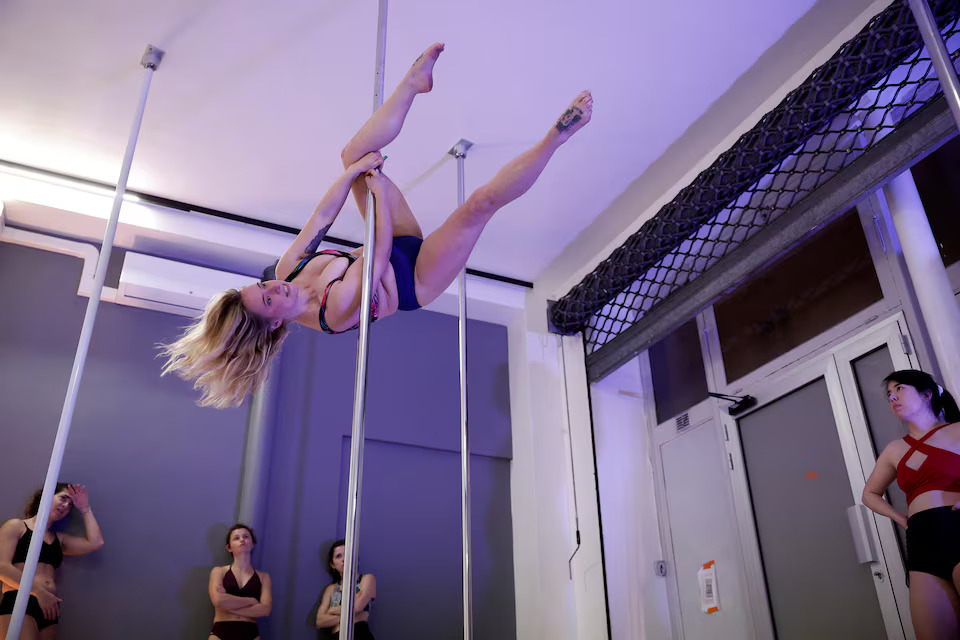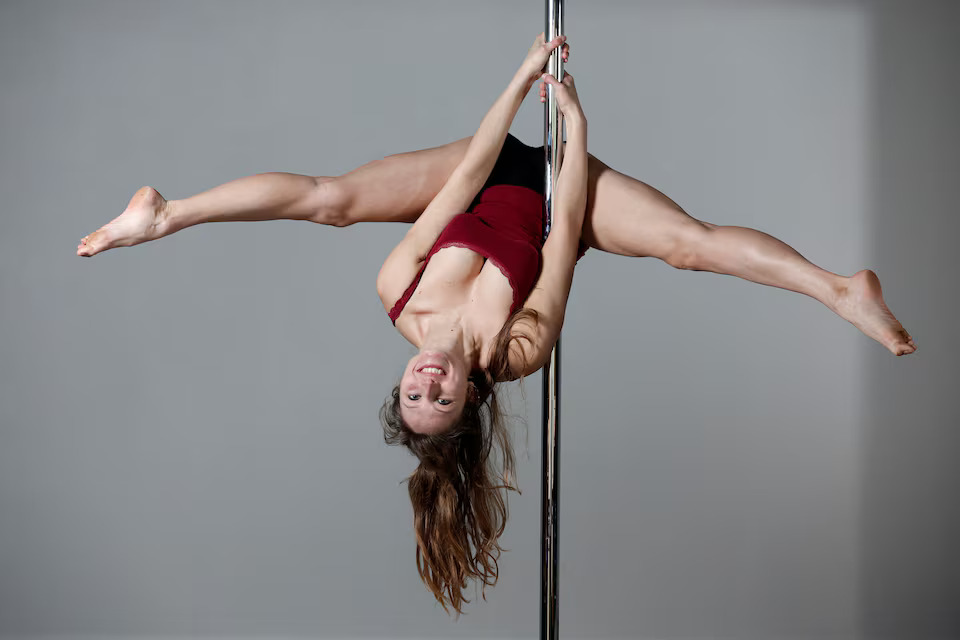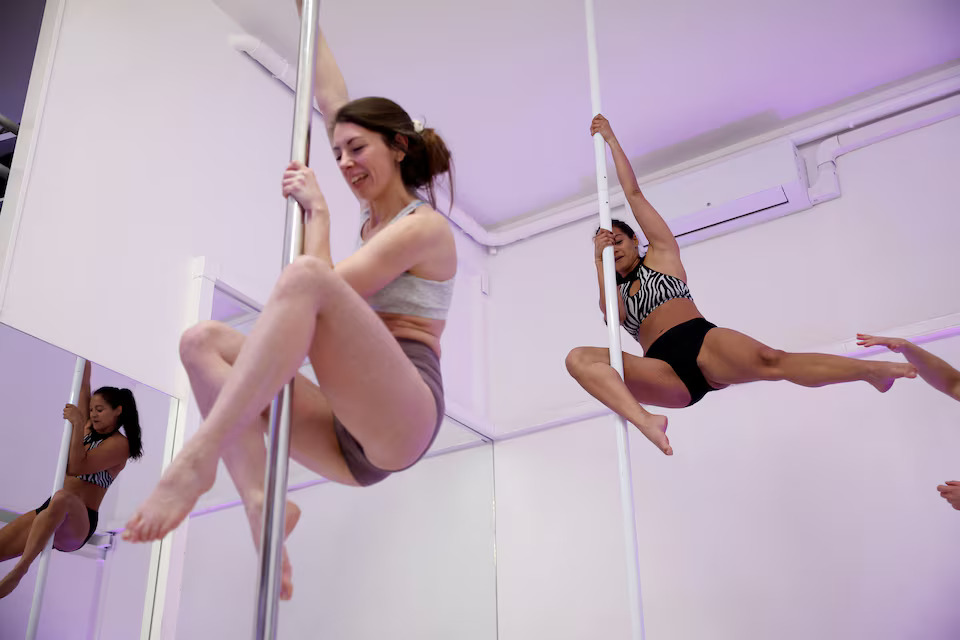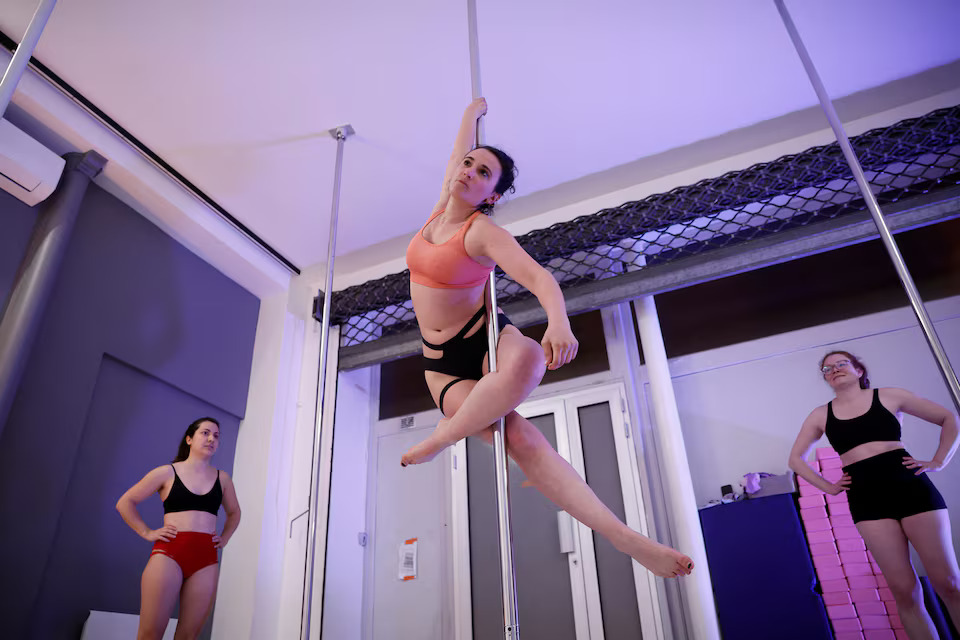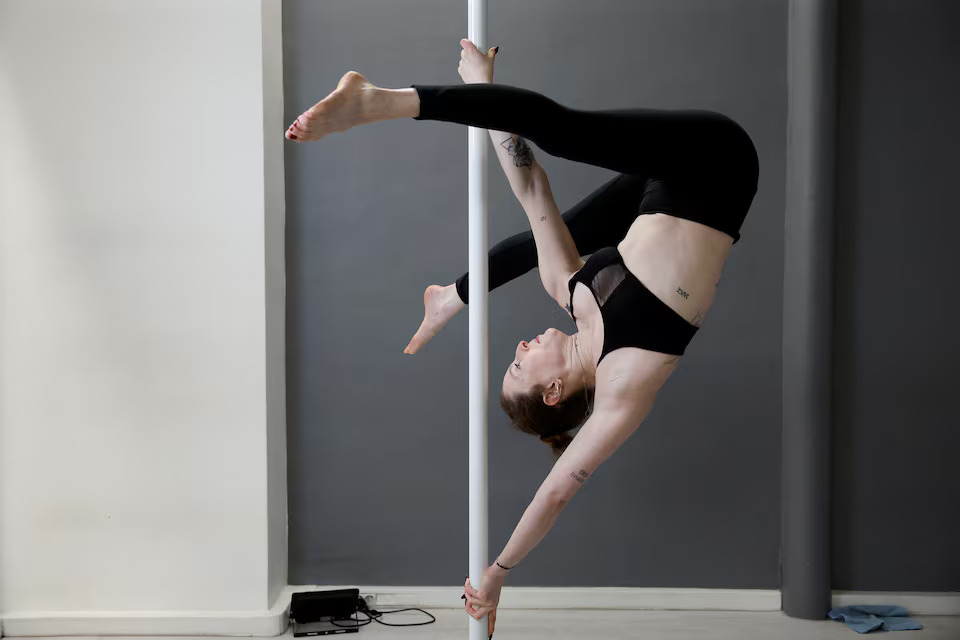PARIS -- With breaking making its first Olympic appearance at the Paris Games later this year, pole dancers feel it could soon be their turn to be in the limelight, although it could come at the cost of losing the spirit of the discipline.
Pole dancing was recognised as a sport by the Global Association of International Sports Federation (GAISF) in 2017 after being essentially confined to cabarets and strip clubs, with some of the physically-demanding moves - Jade Split, Marion Amber - being named after famous strippers.
At The Wild Pole studio in central Paris, strippers in high heels practice alongside women looking for exercise. Some men have also started pole dancing.
"I find it's a pity that someone would want to dissociate the origin of the discipline and the sport itself. Because if it is a sport now, it is because cabaret dancers were the first to give pole dancing lessons," Elodie Katze, co-founder of the Wild Pole Studio, told Reuters.
There are pole dancing competitions around the world, but according to French Dancing Federation president Charles Ferreira, it will take time for the sport to become an Olympic event.
"Maybe in 10 years or something. For this to work it needs a social media presence, it needs to reach a young audience," he told Reuters.
It has, however, already been established as a sport.
"It's a very physical sport. There are tricks that took me three years to do because I didn't have the strength yet," Clara Pauchet, a pole dancing instructor in Lannion, Brittany, told Reuters.
"When I see that breaking is at the 2024 Olympics, then pole dance really has a strong case to have a place. When I see what it requires of the body, I don't see the difference between gymnastics with parallel bars and a vertical bar. I think it really has its place," she added.
While an Olympic label would definitely boost the sport and help businesses grow, some believe it could strip the discipline from its essence.
"It is a double-edged sword. It's true that it's very good for the discipline because it's going to legitimise it, even though I don't like to use that word," Anna Gorynsztejn, co-owner of the Wild Pole Studio, said.
"In people's eyes it will make it less sultry. But this is part of the discipline and I don't want it to be codified and have people tell me how it should be done. The risk is that we lose our soul."
|
|
| Clara Pauchet, 34-year-old pole dancing teacher, shows a figure on a pole at the Flow dance studio in Lannion, Brittany, France, March 15, 2024. Photo: Reuters |
|
|
| Students practice tricks on poles during a class at the pole dancing studio Wild Pole in Paris, France, March 26, 2024. Photo: Reuters |
|
|
| A student practices a trick on a pole during a class at the pole dancing studio Wild Pole in Paris, France, March 26, 2024. Photo: Reuters |
|
|
| Anna Gorynsztejn, co-owner of Wild Pole Studio, shows a figure on a pole at the pole dancing studio Wild Pole in Paris, France, March 26, 2024. Photo: Reuters |



